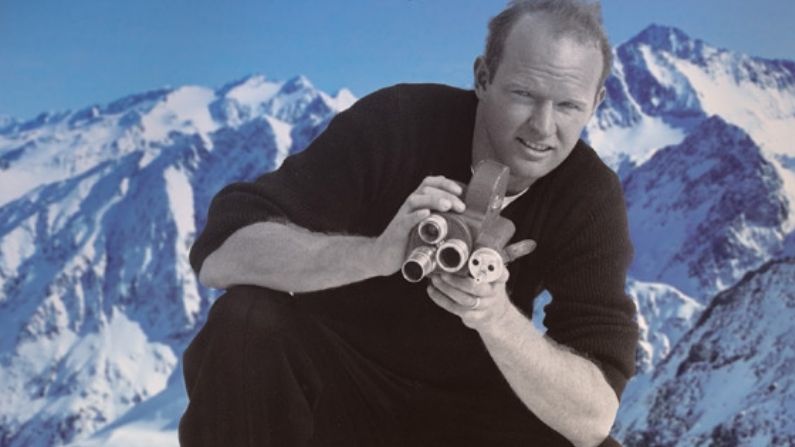Good documentaries are good for many reasons, but they never succeed if the filmmaker gets the voice wrong. The choice of how of the story is told is driven by who is picked to tell it. Since a documentary director is not dealing with professional actors or a fictional and therefore flexible script, they have to rely on regular people and the often-unpredictable meander of their thoughts.
Editing can do a lot to shape such an experience, sometimes too much, but there is no doubt that the voice of a documentary is its soul. Whether the subject calls for an Attenborough-esque stream of urgent consciousness or a rapid-fire collage of experts and associates, the talking part matters. Warren Miller knew this intuitively, which is why he built his career, and his empire, on telling his stories himself.
The creators of “Ski Bum: The Warren Miller Story,” available now on Amazon Prime and other streaming services, agreed that the best person to speak about Warren Miller was Warren Miller. The core of the narrative derives from an interview Miller did just before he died and it follows him from 1930s California to World War II and eventually into the mountains that would rewrite his topographical DNA.
Annually, from 1950 to 2004, Miller shot film on the world’s greatest runs and worked with the best skiers he could find. His movies were shown in cross-country tours that he managed personally, providing live narration for every screening in the early years. The production values increased steadily with each season, but Miller never stopped voicing his own scripts. His gentle cadence and dry, almost antique humor became as integral to the overall experience as the scenery and the turns. As a brand, Warren Miller’s name became bigger than any resort or ski maker. It’s no wonder the popularity of his sport grew right along with him.
Good documentaries also require conflict. “Ski Bum” definitely introduces the ingredients of a few, but none of them are fully explored. There’s a moment when the 93-year-old Miller is recounting one of the more painful chapters of his life and you can tell exactly when he’s said all he intends to. Director Patrick Creadon then just leaves it alone. He doesn’t pursue it or make any of the multiple other interviewees expand on it. Most of the bumps in Miller’s road are handled this way. His marriages, his ambitious son, his rare but significant failures—they all get mentioned but are quickly contextualized in service to his legacy.
I don’t want to call “Ski Bum” a puff piece, but I have to admit there is a lot mythologizing going on. All of the pro skiers and industry protégées that make up the talking head cast are clearly Warren Miller people. They adore him. They are indebted to him. And why not? His work was influential and enduring because of how much joy he wove into it, and they have him to thank for their very livelihoods. He might have died as royalty, but he started as, well, a bum. In a free-spirited world like extreme skiing, rags are worth way more than riches. And Warren Miller was the regular guy who stayed regular while the sport he championed became explosively popular and often frustratingly exclusive around him.
If you’ve ever seen an amazing mountain biking or whitewater kayaking movie, you have Warren Miller to thank for it. Adventure sports filmmaking might have somehow sparked into life without him, but we will never know. He’s the king of it all and “Ski Bum” is a worthy tribute.






